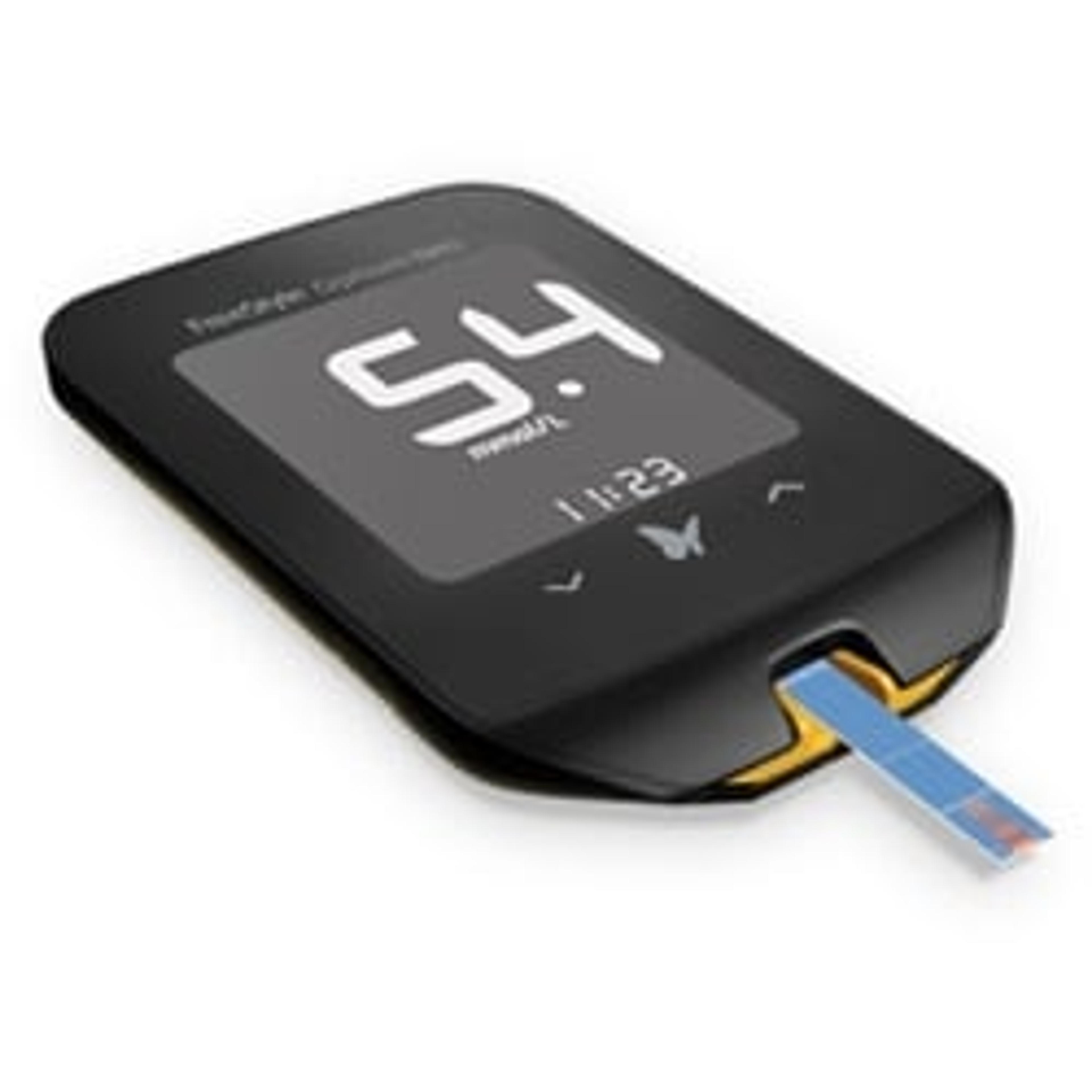New data shows that Abbott’s FreeStyle Libre System reduces diabetes-related hospitalizations for people with type 2 diabetes on once-daily insulin therapy
FreeStyle Libre system can help reduce acute diabetes-related events, such as severe hypoglycaemia and diabetic ketoacidosis, leading to a 67% drop in hospitalizations
21 Sept 2022
Abbott has announced new data from the Real World Evidence of FreeStyle Libre (RELIEF) study showing the use of the FreeStyle Libre continuous glucose monitoring system (CGM) significantly reduced the rate of hospitalisations due to acute diabetes events (ADEs) for people living with type 2 diabetes on once-daily (basal) insulin therapy.1 These findings were published in the Journal of Diabetes Technology & Therapeutics and presented at the 58th Annual European Association for the Study of Diabetes (EASD) meeting.
The retrospective study of the French national health claims database shows that among the 5,933 people with type 2 diabetes who were following a basal-only regimen, the number of ADE-related hospitalisations decreased by 67% after one year of using the FreeStyle Libre system. The data also show a 75% reduction in hospitalisations for diabetic ketoacidosis (DKA), a potentially life-threatening condition when glucose levels are too high for too long and ketone levels rise to dangerous levels in the blood, and a 44% reduction in admissions for severe hypoglycaemia (low glucose levels). Further, the study showed sustained reductions in hospitalisations over a two-year period of FreeStyle Libre system use, regardless of whether the patients were under the care of a diabetes specialist or a general healthcare practitioner.1
"The results of the RELIEF study highlight the value of the FreeStyle Libre system in reducing serious diabetes-related events and hospitalisations among patients with type 2 diabetes on basal-only therapy," says Professor Jean-Pierre Riveline, Centre Universitaire du Diabète et de ses Complications, Hôpital Lariboisière. "The reductions are similar to the results seen among the larger cohort of people with type 2 diabetes who were receiving multiple daily injections, suggesting that FreeStyle Libre technology therapy should be proposed as part of individualised care for patients with type 2 diabetes on basal-only insulin, not just people on intensive insulin therapy."
When oral medications are no longer sufficient to regulate glucose levels, a doctor might change diabetes treatment, starting with once-a-day (basal) insulin therapy. However, studies show that people with type 2 diabetes who start basal insulin therapy are three times more likely to experience severe hypoglycaemia.2
The fear of hypoglycaemia affects both people with type 2 diabetes and their doctors. This fear is a barrier to intensifying treatment and impacts a patient’s willingness to follow the basal insulin therapy as prescribed by their doctor.3,4,5 The RELIEF study suggests that reducing the incidence of hypoglycaemia and DKA may improve adherence and help people with diabetes achieve their glycaemic targets. This is especially relevant for older people, where hypoglycaemia is associated with a significantly increased risk of falls, fractures, dementia, and death.6
"Moving from oral medications to insulin therapy can have a big impact on people with type 2 diabetes, both mentally and physically. Although the switch is often necessary to manage glucose levels, it can be stressful to inject insulin, which comes with associated risks," said Dr Alexander Seibold, senior medical director in Abbott’s diabetes care division. "Our goal is to make diabetes care easier, which is why we offer solutions where people can check their actual glucose values and trends anytime7 on their smartphone or reader. This will help them catch rapidly changing glucose levels and allow them to make adjustments to their lifestyle or medications with much more confidence."
The results from this latest study add to a growing body of evidence that has shown the effectiveness of the FreeStyle Libre system in reducing hospitalisations in people with type 1 and type 2 diabetes on multiple daily injections of insulin.8 Currently, in most European countries, the FreeStyle Libre system is reimbursed for all people with type 1 diabetes. People with type 2 diabetes can only get the product reimbursed if they meet certain criteria, such as using insulin several times a day or having poorly controlled glucose levels.
Want the latest science news straight to your inbox? Become a SelectScience member for free today>>
References
Gerci B, Roussel R, Riveline JP, et al. Important decrease in hospitalizations for acute diabetes events following FreeStyle Libre® system initiation in people with type 2 diabetes on basal insulin therapy in France. Presented at EADV, 20-22 September 2022, Stockholm, Sweden.
Rados DV, Falcetta MRR, Pinto LC, et al. All-Cause Mortality and Cardiovascular Safety of Basal Insulin Treatment in Patients with Type 2 Diabetes Mellitus: A Systematic Review with Meta-Analysis and Trial Sequential Analysis. Diabetes Res Clin Pract. 2021;173:108688; doi: 10.1016/j.diabres.2021.108688.
Peyrot M, Barnett AH, Meneghini LF, et al. Factors Associated with Injection Omission/Non‐adherence in the Global Attitudes of Patients and Physicians in Insulin Therapy Study. Diabetes Obes Metabolism 2012;14(12):1081–1087; doi: 10.1111/j.1463-1326.2012.01636.x.
Polonsky WH, Fisher L, Guzman S, et al. Psychological Insulin Resistance in Patients With Type 2 Diabetes. Diabetes Care 2005;28(10):2543–2545; doi: 10.2337/diacare.28.10.2543.
Walz L, Pettersson B, Rosenqvist U, et al. Impact of Symptomatic Hypoglycemia on Medication Adherence, Patient Satisfaction with Treatment, and Glycemic Control in Patients with Type 2 Diabetes. Patient Prefer Adher. 2014;8:593–601; doi: 10.2147/ppa.s58781.
Mattishent K and Loke YK. Meta-Analysis: Association Between Hypoglycemia and Serious Adverse Events in Older Patients Treated With Glucose-Lowering Agents. Front Endocrinol. 2021;12:571568; doi: 10.3389/fendo.2021.571568.
60-minute warm-up required when applying the sensor
Data on file. Abbott Diabetes Care.

